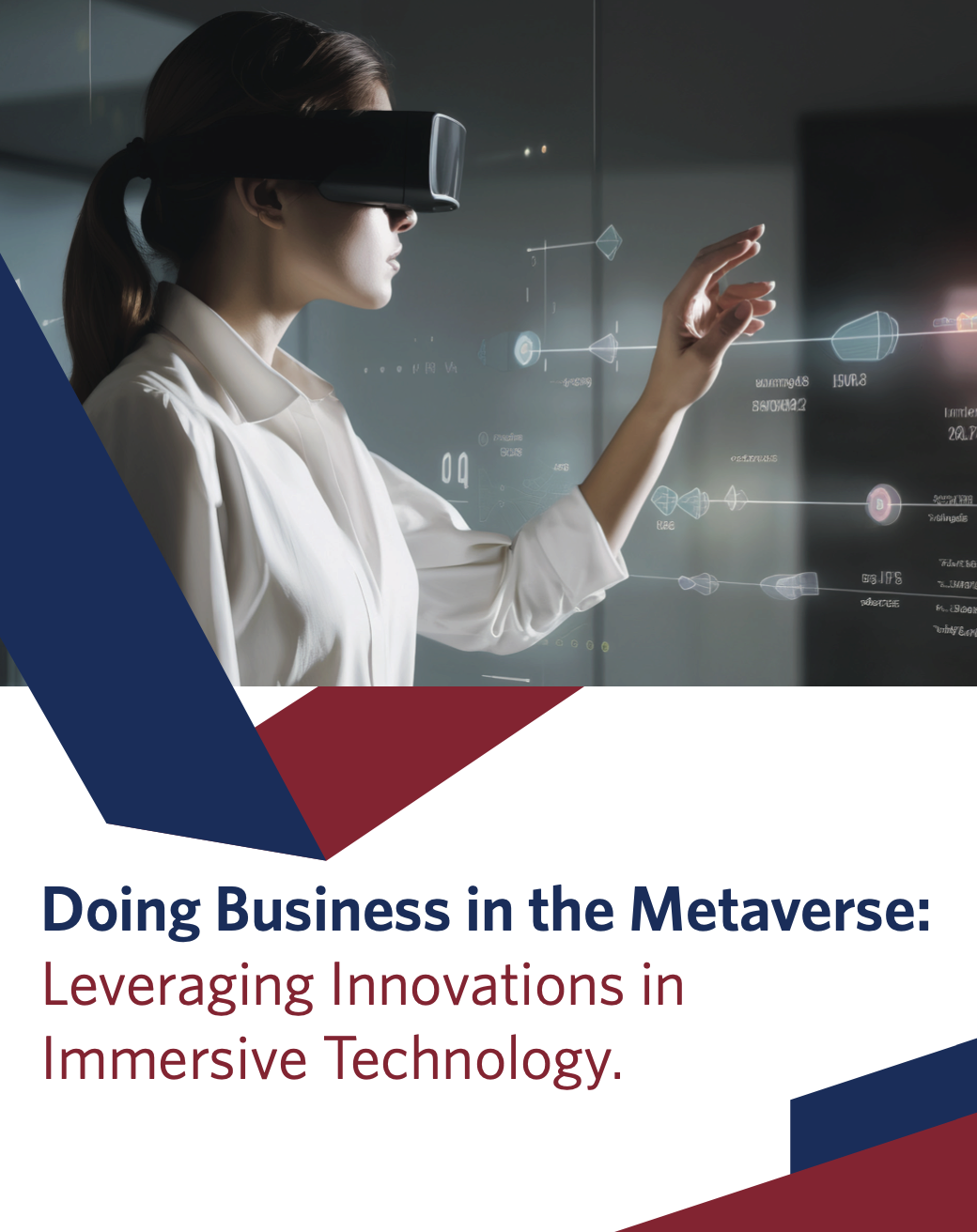 Doing Business in the Metaverse: Leveraging Innovations in Immersive Technology
Doing Business in the Metaverse: Leveraging Innovations in Immersive Technology
by Shankar Parameshwaran
Business use cases within the metaverse are rapidly expanding. The $200 billion global gaming industry empowers its enthusiasts to save the world by egg-bombing enemies or create their own islands. Restaurant chains allow patrons to cook virtual meals or explore their locations on virtual reality (VR) headsets. In health care, the metaverse provides physicians composite views of a patient’s data on their headsets, or trains them for delicate communications with the families of patients, such as parents of terminally ill children. Avatars help retail customers try out apparel or come close to testing a fragrance as they would at an actual store.
In more workaday and complex settings, companies drawing on the Industrial Metaverse can build digital twins of factories. This enables simulation of a range of real-life scenarios from product planning and sustainable raw material sourcing to accident prevention by anticipating maintenance issues. Yet another safety innovation is in training drivers with real-life simulations of road and weather conditions, or detecting distracted driving by tracking eye movements. And, in order to prepare emerging talent for that new world, leading universities, including Wharton, are creating business courses around the metaverse.
In this white paper, faculty experts at Wharton and elsewhere, and industry practitioners, share insights into how businesses benefit from innovatively tapping into metaverse applications, even as they confront concerns and ethical issues that new technologies typically bring.



